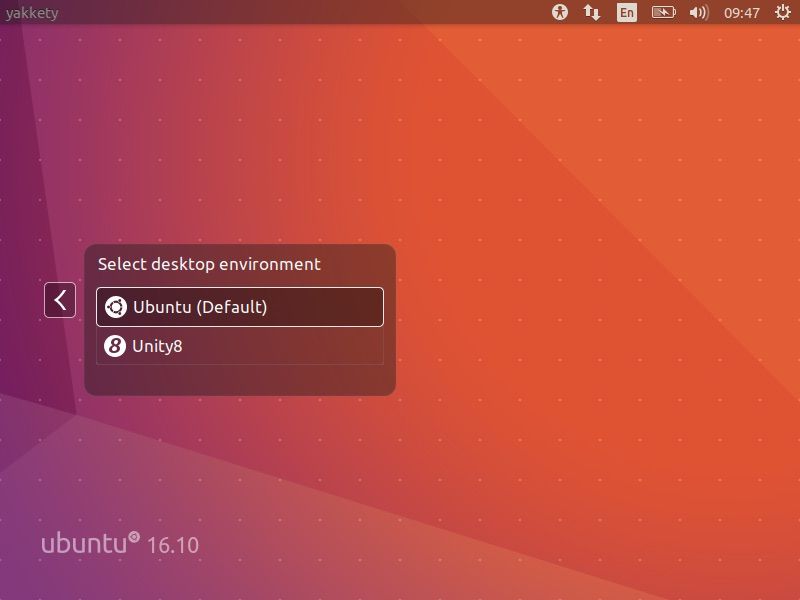
Six years after making Unity the default user interface on Ubuntu desktops, Canonical is giving up on the project and will switch the default Ubuntu desktop back to GNOME next year. Canonical is also ending development of Ubuntu software for phones and tablets, spelling doom for the goal of creating a converged experience with phones acting as desktops when docked with the right equipment.
Canonical founder Mark Shuttleworth explained the move in a blog post Wednesday. "I’m writing to let you know that we will end our investment in Unity8, the phone and convergence shell," he wrote. "We will shift our default Ubuntu desktop back to GNOME for Ubuntu 18.04 LTS," which will ship in April 2018.
This is a return to the early years of Ubuntu, when the desktop shipped with GNOME instead of a Canonical-developed user interface. Shuttleworth's blog post didn't specifically say that phone and tablet development is ending. But Canonical Community Manager Michael Hall confirmed to Ars that the Ubuntu phone and tablet project is over.
"Work on the phone and tablet is also ending, the whole convergence story, really," Hall said. "The desktop will continue, but like it was in the pre-Unity days where we took what upstream [developers] designed and developed."

Ubuntu phones and laptops never became popular with hardware makers, carriers, or consumers, and software development seemed to be slowing down. While Unity 8 was shipping on phones and tablets, it has never been stable enough to become the default on the desktop, which uses Unity 7. Canonical's work on creating a new desktop display server, Mir, has also been slow.
By switching to GNOME, Canonical is also giving up on Mir and moving to the Wayland display server, another contender for replacing the X window system. Given the separate development paths of Mir and Wayland, "we have no real choice but to use Wayland when Ubuntu switches to GNOME by default," Hall told Ars. "Using Mir simply isn't an option we have."
Despite phone failure, Ubuntu is a hit in the cloud
Canonical has found financial success in the business IT market, particularly with server and cloud software. Shuttleworth said killing off Unity is "a very difficult decision" for him personally, "but this choice is shaped by commercial constraints, and those two are hard to reconcile."
Shuttleworth made it clear that mobile isn't the financial future of the company. He wrote:
The cloud and IoT story for Ubuntu is excellent and continues to improve. You all probably know that most public cloud workloads, and most private Linux cloud infrastructures, depend on Ubuntu. You might also know that most of the IoT work in auto, robotics, networking, and machine learning is also on Ubuntu, with Canonical providing commercial services on many of those initiatives. The number and size of commercial engagements around Ubuntu on cloud and IoT has grown materially and consistently.
...
The choice, ultimately, is to invest in the areas which are contributing to the growth of the company. Those are Ubuntu itself, for desktops, servers and VMs, our cloud infrastructure products (OpenStack and Kubernetes) our cloud operations capabilities (MAAS, LXD, Juju, BootStack), and our IoT story in snaps and Ubuntu Core. All of those have communities, customers, revenue and growth, the ingredients for a great and independent company, with scale and momentum. This is the time for us to ensure, across the board, that we have the fitness and rigour for that path.
This doesn't mean that Canonical is ending desktop development, he wrote. "We will continue to produce the most usable open source desktop in the world, to maintain the existing LTS releases, to work with our commercial partners to distribute that desktop, to support our corporate customers who rely on it, and to delight the millions of IoT and cloud developers who innovate on top of it," Shuttleworth wrote.
Shuttleworth acknowledged that Canonical's work on Unity instead of GNOME was viewed as "fragmentation" in the Linux community. While Shuttleworth praised the work done by Canonical's Unity 8 team, he said that "markets, and community, ultimately decide which products grow and which disappear."
In 2013, Shuttleworth told Ars that Canonical could be profitable if it trimmed itself down to focus on its most successful lines of business. But he kept investing money in Canonical because of his phone ambitions. He even predicted that "the desktop on its own will die" without a mobile counterpart. But nearly four years later, phones have not killed PCs, and it doesn't appear that the death of the Ubuntu phone will have any long-term impact on the Ubuntu desktop's viability.
reader comments
329